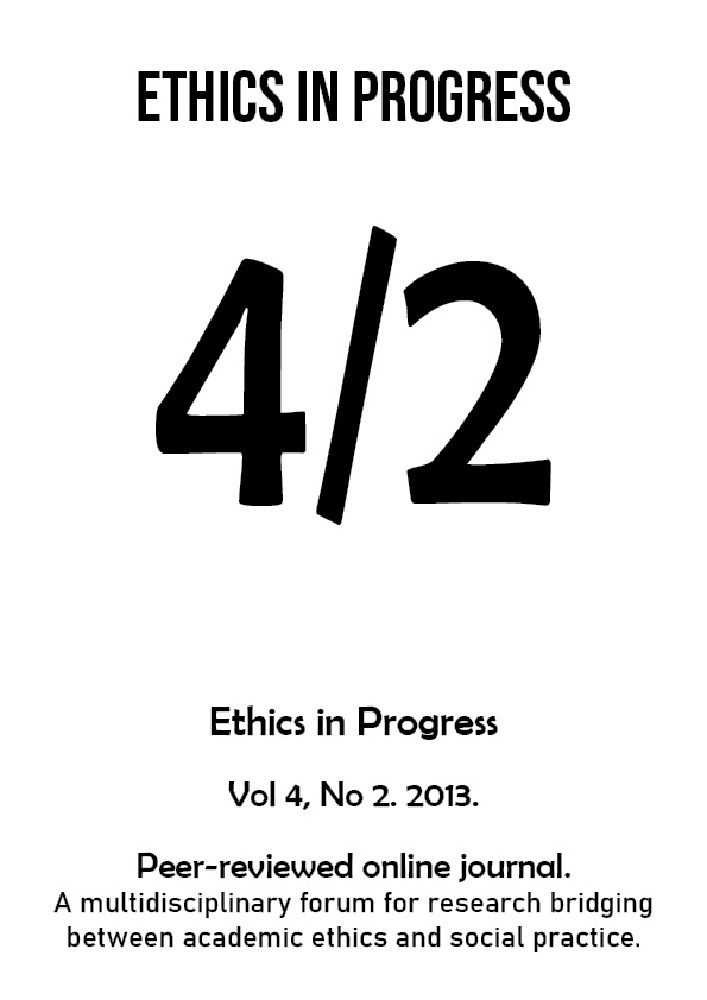Abstract
Satisfied desires make you happy. Desires are fantasy narratives a person tells about her life and goals. They focus on intentional objects that are happiness-makers for the person: to achieve them is supposed to make one happy. Normally, such objects are good things and their context is seen in a positive manner. However, the goals may also be hurtful, as the person herself sees it. These are, at least sometimes, mad desires. To explain them, it is not enough to say that they are impulsive and irrational, unconscious, or that they are good in disguise. I explain what this means and give some examples. I also consider the thesis that satisfaction of desire is less than full happiness, which may well be true. This becomes clear when we think of moral choices.References
Airaksinen, T. 2012. “Happiness and Desire”. Homo Oeconomicus Vol. 29 Issue 3: 393–412.
Airaksinen, T., Kaalikoski, K. 2001. “Instrumental Rationality”. In: Pryer, G., Peter, G. P. (eds.) The Contextualization of Rationality. Paderborn: Mentis.
Berlin, I. 1994. The Magus of the North: J. G. Hamann and the Origins of Modern Irrationalism. New York: Farrar, Straus & Giroux.
Berlin, I. 2001. Roots of Romaticism. Princeton: Princeton University Press.
Brooks, A. C. 2008. Gross National Happiness. New York: Basic Books. Casey, J. 1990. Pagan Virtues. Oxford: Oxford University Press.
Davidson, D. 1982. “Paradoxes of Irrationality”. In: Wollheim, R., Hopkins, J. (eds.) Philosophical Essays on Freud. Cambridge: Cambridge University Press.
Haybron, D. M. 2008. The Pursuit of Unhappiness. Oxford: Oxford University Press.
Kant, I. 1964. Groundwork of the Metaphysics of Morals. Trans. H. J. Paton. New York: Harper.
Kant, I. 1996. The Metaphysics of Morals. Trans. M. Gregor. Cambridge: Cambridge University Press.
Loar, B. 1981. Mind and Meaning .Cambridge: Cambridge University Press.
MacIntyre, A. 1981. After Virtue. Notre Dame: Notre Dame Press.
Mailer, N. 1979. The Executioner's Song. London: Little Brown.
Mele, A. 2001. Self-Deception Unmasked. Princeton: Princeton University Press.
Plato. 2001. Symposium. Trans. S. Bernadete. Chicago: University of Chicago Press.
Schroeder, T. 2009. “Desire”. In: Edward N. Zalta (ed.). The Stanford Encyclopedia of Philosophy (Winter 2009 Edition). URL = http://plato.stanford.edu/archives/win2009/entries/desire/. (Accessed 9/26/12)
Stocker, M. 1979. “Desiring the Bad: An Essay in Moral Psychology”. Journal of Philosophy Vol. 76: 738-53
Webster, D. 2005. Philosophy of Desire in the Buddhist Pali Canon. London: Routledge.
Weil, S. 2007. Gravity and Grace. Trans. E. Crawford & M. von der Ruhr. London: Routledge.
Westermarck, E. 1939. Christianity and Morals. London: Kegan Paul. Williams, B. 1985. Ethics and the Limits of Philosophy. Cambridge: Harvard University Press.




